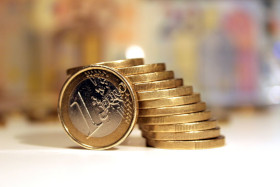The euro fell against the US dollar and the bigger-than-expected slump of the German business climate and the disagreement between the European Union members about how to tackle financial stimulus to the economy. Against other rivals the euro was mixed.
The Ifo Business Climate Index plummeted from 96.0 in February to 86.1 in March, seasonally adjusted. It was the lowest level since June 2009. Furthermore, it was the steepest drop since German unification. The report commented on the result:
Companiesâ expectations in particular have darkened as never before. Assessments of the current situation have also worsened considerably. The German economy is in shock.
Meanwhile, the EU members were in disagreement about how exactly to provide support to the economy that was hit hard by the COVID-19 pandemic and the lockdown measures aimed to contain it. Spain, Italy, and France were in favor of a â¬1.5 trillion package that will be transferred in grants to states hit hardest by the pandemic. Meanwhile, Germany, Sweden, Netherlands, and other northern countries were in favor of loans. It looks like the EU faces not just an economic crisis but also a political one as well.
EUR/USD declined from 1.0776 to 1.0753 as of 8:48 GMT today, touching the low of 1.0730 intraday. EUR/NZD traded at 1.7953, close to the opening level of 1.7936. EUR/CHF dropped from 1.0517 to 1.0514 after rising to the daily high of 1.0523 earlier.
If you have any questions, comments, or opinions regarding the Euro, feel free to post them using the commentary form below.



Be First to Comment